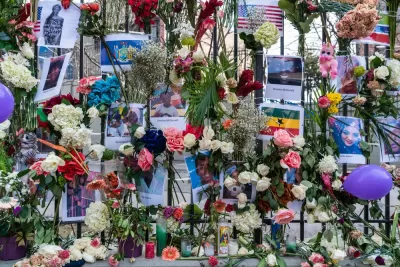New legislation gives the federal agency power to identify the causes of deadly fires and recommend improvements.

The U.S. Fire Administration, part of the Federal Emergency Management Agency (FEMA), will use newly granted investigatory powers to identify buildings at high risk of fire and issue recommendations in an effort to avoid fatal fires like the one that killed 17 people at the Twin Parks North West housing complex a year ago.
As Jeffery C. Mays and Téa Kvetenadze report in the New York Times, “The blaze was sparked by an electric space heater that ignited a mattress, but the victims died of smoke inhalation, not the fire itself. Investigators believe that deadly smoke was able to spread to the upper floors of the 19-story building because of faulty self-closing doors.”
“Just like there is a federal process for investigating airplane incidents and cyber incidents, there ought to be a comparable process for investigating fire incidents in the hopes of translating the lessons learned into policies and practices that will prevent future fires and save lives.”—U.S. Representative Ritchie Torres (D-NY)
The problem is particularly acute in older buildings, many of which provide affordable housing for low-income households. “More than a million American households live in public housing units, and many lack lifesaving measures like sprinklers or hard-wired smoke detectors,” the article points out. Lori Moore-Merrell, head of the U.S. Fire Administration, is quoted as saying that “too many older buildings that serve as affordable housing are grandfathered in and not required to meet the building codes of new construction because of the myth that the improvements are too expensive.” The legislation does not specify any enforcement mechanisms beyond “cooperation with appropriate federal, state, local, tribal, and territorial authorities.”
FULL STORY: Year After Deadly Bronx Blaze, a Plan to Combat ‘America’s Fire Problem’

Alabama: Trump Terminates Settlements for Black Communities Harmed By Raw Sewage
Trump deemed the landmark civil rights agreement “illegal DEI and environmental justice policy.”

Study: Maui’s Plan to Convert Vacation Rentals to Long-Term Housing Could Cause Nearly $1 Billion Economic Loss
The plan would reduce visitor accommodation by 25% resulting in 1,900 jobs lost.

Planetizen Federal Action Tracker
A weekly monitor of how Trump’s orders and actions are impacting planners and planning in America.

Waymo Gets Permission to Map SF’s Market Street
If allowed to operate on the traffic-restricted street, Waymo’s autonomous taxis would have a leg up over ride-hailing competitors — and counter the city’s efforts to grow bike and pedestrian on the thoroughfare.

Parklet Symposium Highlights the Success of Shared Spaces
Parklets got a boost during the Covid-19 pandemic, when the concept was translated to outdoor dining programs that offered restaurants a lifeline during the shutdown.

Federal Homelessness Agency Places Entire Staff on Leave
The U.S. Interagency Council on Homelessness is the only federal agency dedicated to preventing and ending homelessness.
Urban Design for Planners 1: Software Tools
This six-course series explores essential urban design concepts using open source software and equips planners with the tools they need to participate fully in the urban design process.
Planning for Universal Design
Learn the tools for implementing Universal Design in planning regulations.
Caltrans
Smith Gee Studio
Institute for Housing and Urban Development Studies (IHS)
City of Grandview
Harvard GSD Executive Education
Toledo-Lucas County Plan Commissions
Salt Lake City
NYU Wagner Graduate School of Public Service




























